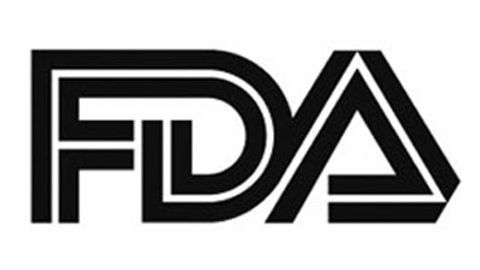FDA Grants Priority Review to Adjuvant Nivolumab for High-Risk MIUC
The FDA has accepted a Biologics License Application for nivolumab for the adjuvant treatment of patients with surgically resected, high-risk muscle-invasive urothelial carcinoma and granted it Priority Review.

The FDA has accepted a Biologics License Application (BLA) for nivolumab (Opdivo) for the adjuvant treatment of patients with surgically resected, high-risk muscle-invasive urothelial carcinoma (MIUC) and granted it a priority review, announced Bristol Myers Squibb, in a press release.1
Nivolumab’s BLA is supported by data from the phase 3 CheckMate-274 trial (NCT02632409) in which adjuvant nivolumab demonstrated an improvement in median disease-free survival (DFS) compared with placebo in patients with MIUC. CheckMate-274 represents the first positive phase 3 trial of an immunotherapy in the adjuvant setting of surgically-resected high-risk MIUC.
“After patients undergo surgery for muscle-invasive urothelial carcinoma, they continue to face uncertainties given the high rate of disease recurrence and the lack of safe and effective treatment options,” said Dana Walker, MD, MSCE, vice president, development program lead, genitourinary cancers, Bristol Myers Squibb, in a statement. “Based on the ground-breaking disease-free survival results from CheckMate 274, we believe Opdivo has the potential to change the future of treatment for muscle-invasive urothelial carcinoma. We look forward to working with the FDA towards the goal of bringing the first adjuvant immunotherapy option to these patients in the US.”
Results from the randomized, double-blind, CheckMate 274 trial were presented during the 2021 Genitourinary Cancers Symposium. Investigators of the study set out to determine the efficacy and safety of nivolumab in this setting. Patients with high-risk MIUC were randomized 1:1 after radical surgery to receive nivolumab 240 mg administered once every 2 weeks or placebo for up to 1 year of adjuvant treatment. A total of 353 patients were treated with nivolumab and 356 received placebo. The primary end point of the study was disease-free survival (DFS) in the intention-to-treat (ITT) and PD-L1–positive populations. The secondary end point was non-urothelial tract recurrence-free survival (NUTRFS), disease-specific survival (DSS), and overall survival (OS). The exploratory end points of the study were distant-metastasis-free survival (DMFS), safety, and health-related quality-of-life.2
At a median follow-up of 20.9 months for the nivolumab arm and 19.5 months for the placebo arm, treatment with nivolumab achieved a median DFS benefit in both the ITT and PD-L1–positive populations. In the ITT group, the median DFS was 21.0 months in those treated with nivolumab compared with 10.9 months among those given placebo (HR, 0.70; 98.31% CI, 0.54-0.89; P < .001).
In the PD-L1–positive cohort, 140 patients were treated with nivolumab, and 142 received placebo. The median DFS was not reached (NR) in the immunotherapy arm versus 10.8 months in the placebo arm (HR, 0.53; 98.87% CI, 0.34-0.84; P < .001), showing a 47% reduction in the risk of disease recurrence or death with nivolumab.
In terms of the secondary end points of the study, the ITT population showed a median NUTRFS of 24.6 months in the nivolumab arm versus 13.7 months in the placebo group (HR, 0.72; 95% CI, 0.58-0.89). In the PD-L1–positive population, median NUTRFS in those treated with nivolumab was not reached compared with 10.9 months in the placebo arm (HR, 0.54; 95% CI, 0.38-0.77).
The median DMFS observed with the nivolumab-treated arm of the ITT population was 35.0 months versus 29.0 months in the placebo arm (HR, 0.74; 95% CI, 0.58-0.93). In the PD-L1–positive group, the median DMFS was NR in those treated with nivolumab compared with 21.2 months in those who received placebo (HR, 0.60; 95% CI, 0.41-0.88).
Results from the study also showed that the safety of nivolumab was consistent with previously reported studies in patients with solid tumors. Adverse events (AEs) of any grade occurred in 98.9% of the nivolumab arm compared with 95.4% of the placebo arm. Grade 3 or higher events were seen in 42.7% of the nivolumab arm compared with 36.8% of the placebo arm.
Any-grade treatment-related AEs were observed in 77.5% of the nivolumab arm versus 55.5% in the placebo arm, and grade 3 or higher TRAEs occurred in 17.9% of patients versus 7.2% of patients, respectively. These any-grade TRAEs led to treatment discontinuation in 12.8% of the nivolumab-treated population versus 2.0% of the placebo arm, and grade 3 or higher TRAEs led to treatment discontinuation in 7.1% of the nivolumab arm compared with 1.4% of the placebo arm.
Nivolumab is a PD-1 immune checkpoint inhibitor that is also being explored for the treatment of patients with melanoma in CheckMate 238 (NCT02388906), esophageal/gastroesophageal junction cancer in CheckMate 577 (NCT02743494), and CheckMate 816 (NCT02998528). Follow-up of nivolumab treatment for patients with surgically resected, high-risk MIUC is ongoing in CheckMate 274.
References:
1. U.S. Food and Drug Administration accepts for priority review Bristol Myers Squibb’s application for Opdivo (nivolumab) as adjuvant treatment for patients with muscle-invasive urothelial carcinoma. News release. Bristol Myers Squibb. April 30, 2021. Accessed April 30, 2021. https://bit.ly/3e6POmQ
2. Bajorin DF, Witjes JA, Gscwend JE, et al. First results from the phase 3 CheckMate 274 trial of adjuvant nivolumab vs placebo in patients who underwent radical surgery for high-risk muscle-invasive urothelial carcinoma (MIUC). J Clin Oncol. 2021;39(suppl 6):391. doi:10.1200/JCO.2021.39.6_suppl.391











